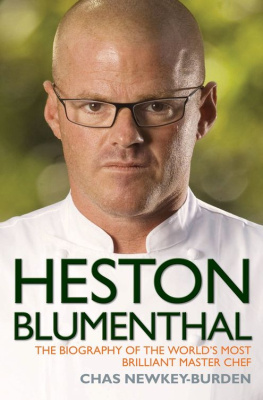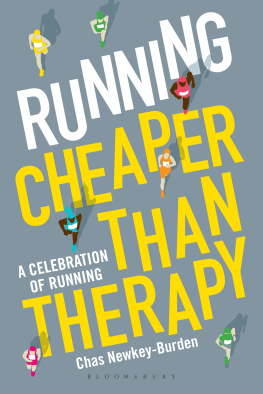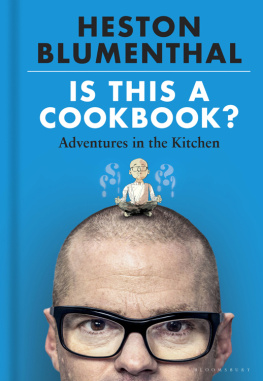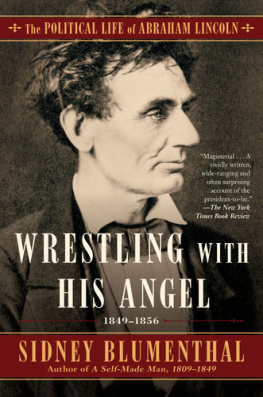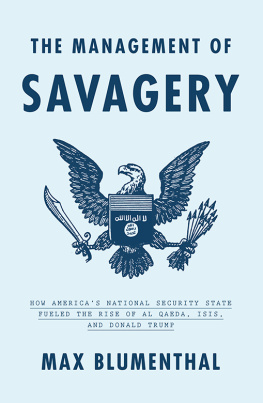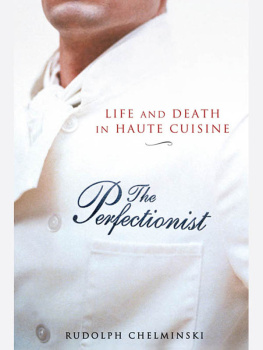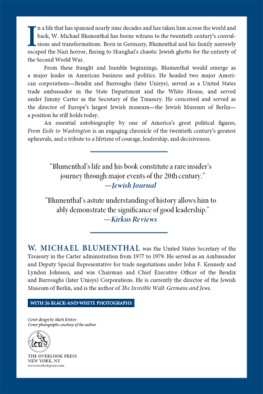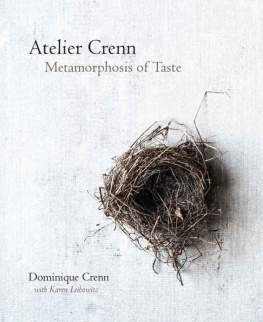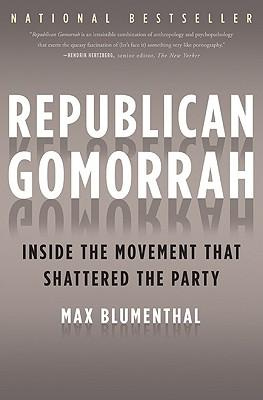Newkey-Burden - Heston Blumenthal
Here you can read online Newkey-Burden - Heston Blumenthal full text of the book (entire story) in english for free. Download pdf and epub, get meaning, cover and reviews about this ebook. year: 2012, publisher: John Blake Publishing, genre: Detective and thriller. Description of the work, (preface) as well as reviews are available. Best literature library LitArk.com created for fans of good reading and offers a wide selection of genres:
Romance novel
Science fiction
Adventure
Detective
Science
History
Home and family
Prose
Art
Politics
Computer
Non-fiction
Religion
Business
Children
Humor
Choose a favorite category and find really read worthwhile books. Enjoy immersion in the world of imagination, feel the emotions of the characters or learn something new for yourself, make an fascinating discovery.
- Book:Heston Blumenthal
- Author:
- Publisher:John Blake Publishing
- Genre:
- Year:2012
- Rating:5 / 5
- Favourites:Add to favourites
- Your mark:
- 100
- 1
- 2
- 3
- 4
- 5
Heston Blumenthal: summary, description and annotation
We offer to read an annotation, description, summary or preface (depends on what the author of the book "Heston Blumenthal" wrote himself). If you haven't found the necessary information about the book — write in the comments, we will try to find it.
Heston Blumenthal — read online for free the complete book (whole text) full work
Below is the text of the book, divided by pages. System saving the place of the last page read, allows you to conveniently read the book "Heston Blumenthal" online for free, without having to search again every time where you left off. Put a bookmark, and you can go to the page where you finished reading at any time.
Font size:
Interval:
Bookmark:
I t was, for Heston Blumenthal, a eureka moment
As he learned the art of cooking, he loved to read books about the culinary world. They fired his imagination and fuelled his ambition. He would spend hours poring over their words and pictures, learning the tricks of the trade. The lives of the chefs depicted in their pages seemed to him to be extraordinarily glamorous. These almost mythical men combined a working life of cooking and experimenting in the kitchen with a decadent leisure lifestyle in such exotic locations as the south of France. He would build his own library of cooking-related books, not just straightforward recipe titles, though there would be plenty of them. When he got older he would also read tomes about the principles behind food and its preparation, but the book that first captured his imagination was called On Food and Cooking: The Science and Lore of the Kitchen and he came across this when he was 19 years old. Written by American food guru Harold McGee, the book was bursting with knowledge and enthusiasm for the art of cookery. Heston bought it the year it was first published 1986 and found that, in every sense, it spoke his language. Here was a scientific approach to food and cooking, although that was initially secondary to his connection with McGees manifesto. It was when Heston turned to page 115 of the book that his heart really raced and his mind truly became enlivened. McGee wrote that, contrary to wisdom accepted since the middle of the 19th century, searing a meat does not seal it. This might not seem significant to the layman, but to the cooking world this was a revolutionary pronouncement. The entire culinary world had believed without question that searing sealed a meat, effectively creating a shell around it. Yet here was McGee trampling all over that received wisdom.
Blumenthals mind was blown by this news. For years, he had pursued a scientific approach to food, an approach that McGee swore by too. However, the realisation that the unquestionable truth was not actually true prompted Blumenthal to fundamentally change his approach towards cuisine. It was not the detail of searing that made such an impact, more what the principle could mean for the rest of cooking. A list of other written-in-stone cooking principles flashed through his mind. How many of them might be on closer, clear-minded inspection open to serious debate too?
He thought and began to wonder whether the accepted approach for so many principles and ideas of cooking had held back his predecessors. How much higher could he rise, now that he had adopted a very basic, but utterly fundamental principle which would be summed up in two words: question everything.
H eston Blumenthal is a master of combining contrasting flavours in his dishes to wonderful effect. Indeed, his entire approach is ruled by a pleasing paradox: he is an eccentric with a love of dishes that are named as if they have lofty pretensions, yet, amid his tireless experimentation and use of expensive ingredients, he always retains the common touch. As he pointed out in his book In Search of Perfection, For many of us, the perfect meal wont be some fancy restaurant food. He goes on to explain that the desert island dish most people would nominate would be something homely. Likewise, the dishes most requested as a last meal by the condemned men of death row are usually things such as burger and fries, egg and bacon or ice cream everyday dishes, rather than gastronomic luxuries or complex-tasting menus. When we look at some of Blumenthals most outlandish dishes bacon and egg ice cream, snail porridge and the like we see that he is combining gastronomic excellence with just these sorts of familiar comfort-food bases.
Indeed, given the theatre with which he serves many of his dishes iPods playing the sounds of the sea are provided alongside a seafood dish, cakes have orgasms on the plate by firing out white chocolate mousse when the diner cuts in it is clear that Blumenthal is not only aiming his food at those for whom a 100+ meal is an everyday norm. Rather, his target audience include those among us who have to save up for a really special treat and want to savour every moment and mouthful. Blumenthal understands these people because back in his twenties he was one of them. Indeed, despite being financially far better off these days, he remains one of them.
Away from his working life, Heston Blumenthal enjoys the simple foods of the world as much as he does the more extravagant ones. Although he finds it hard to eat regularly with his family due to the immense demands of his job, when he does, he insists that they eat down-to-earth grub.
Each Sunday at 5pm, the family sit down to a traditional Sunday roast and on Monday evening it is always a curry, often ordered in from his local takeaway. When he wants to eat out, it is far from unheard of to see him at a Pizza Express restaurant or even queuing up at the doner kebab van in Marlow, the Berkshire town where he lives. Theres nothing wrong with kebab, he says, apart from the fat it contains. With the occasional exception, he sees his indulgences not at the table, but in the kitchen. My biggest indulgence is work, he says.
But this ordinary home life should not detract at all from the magical results of Blumenthals hours of work and experimentation in his development kitchen in Bray. The very names of his dishes are dazzling enough to eat them is always a multi-sensory, unforgettable experience. Seemingly without any effort, he gives the impression that there is no end to his abilities. As one journalist wrote of Blumenthal, He could probably make you a cloud sandwich if you asked. Or a blancmange made of numbers. He can do anything, basically.
To the casual observer, he might seem like a vision from futuristic culinary fantasy, but there is only once place that Blumenthal would journey to if he were given a time-travel machine: the past. To say Blumenthal is a nostalgic man is something of an understatement. So much of his work involves him trying to recapture childhood memories. Food for him takes him back to a time of reassurance; smells, flavours and even the sound and appearance of food are for him strongly evocative.
All of this has led to Blumenthal being compared to numerous figures. A regular person that he is compared to is Willy Wonka, of Roald Dahls classic for children Charlie and the Chocolate Factory. Wonka is a genius recluse and eccentric character who runs a magical chocolate factory which makes exciting treats such as Everlasting Gobstoppers and Whipple-Scrumptious Fudgemallow Delight.
However, as we shall see, the childhood novel that most speaks to him is Lewis Carrolls Alice in Wonderland, a story he frequently alludes to. There is indeed something of the childhood scientist about the way he goes about his experimentation. Here is evidence of a man who is truly joyful in his work. For where do any of us go in our minds when we are happiest but to our childhood?
Blumenthal is a man who is at play as he works. What an enviable position to be in! Even when he explains why he crops his hair, he takes the conversation back several decades. Have you seen the Hair Bear Bunch from the 1970s? he asks. The truth is I have the biggest mop of red hair; its like strapping a doormat to my head. I could have a ginger afro the truth is out!
He is a humble man despite his enormous success and fame. When he went to Buckingham Palace to receive an OBE from the Queen in 2006, he was standing next to fashion designer Ozwald Boateng, who was also about to be gonged. Blumenthal regarded those alongside them, including those devoted to their community and people who had worked on behalf of ethnic minorities. He turned to the fashion designer and said, There are all these people whove done amazing charity work and then theres me whos getting a gong for chopping a few onions and you whos getting one for a bit of sewing.
Font size:
Interval:
Bookmark:
Similar books «Heston Blumenthal»
Look at similar books to Heston Blumenthal. We have selected literature similar in name and meaning in the hope of providing readers with more options to find new, interesting, not yet read works.
Discussion, reviews of the book Heston Blumenthal and just readers' own opinions. Leave your comments, write what you think about the work, its meaning or the main characters. Specify what exactly you liked and what you didn't like, and why you think so.

